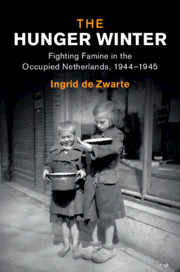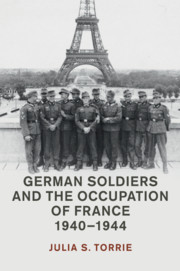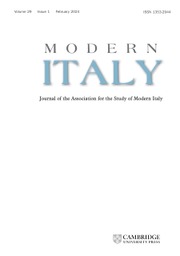The Hunger Winter
In this pioneering study, Ingrid de Zwarte examines the causes and demographic impact of the Dutch 'Hunger Winter' that occurred in the Netherlands during the final months of German occupation in the Second World War. She offers a comprehensive and multifaceted view of the socio-political context in which the famine emerged and considers how the famine was confronted at different societal levels, including the responses by Dutch, German and Allied state institutions, affected households, and local communities. Contrary to highly-politicized assumptions, she argues that the famine resulted from a culmination of multiple transportation and distribution difficulties. Although Allied relief was postponed for many crucial months and official rations fell far below subsistence level, successful community efforts to fight the famine conditions emerged throughout the country. She also explains why German authorities found reasons to cooperate and allow relief for the starving Dutch. With these explorations, The Hunger Winter offers a radically new understanding of the Dutch famine and provides a valuable insight into the strategies and coping mechanisms of a modern society facing catastrophe.
- Offers a comprehensive and multifaceted view of the socio-political context in which the Dutch famine emerged and was confronted
- Situates the Dutch 'Hunger Winter' within a broader frame of Nazi hunger politics in occupied Europe
- Examines how a modern society with a highly-developed economy such as the Netherlands coped with food shortage and famine
- Critically assesses the politics and practices of Allied relief for the occupied Netherlands
Reviews & endorsements
'A humane and penetrating study that offers a new, layered appreciation of food security in the final years of the war, and the importance of household and communities strategies for survival during the Dutch Hunger Winter.' Patricia Clavin, University of Oxford
'This book is a tour de force by a young Dutch historian. It provides a long overdue synthesis of the Dutch, German, and Allied interests that shaped the Dutch Hunger Winter and dispels commonly held beliefs with extensive documentation. A trailblazing analysis that will set the tone for future studies.' L.H. Lumey, Columbia University, New York
'Ingrid de Zwarte delves beyond the myths that have surrounded the Hunger Winter since the end of the Second World War to provide us with the first definitive analysis of the circumstances and consequences surrounding this traumatic event in modern Dutch history.' Bob Moore, Emeritus Professor of History, University of Sheffield
'Ingrid de Zwarte's The Hunger Winter rejects a version of events based on the role of the Nazi occupier in causing the famine and of Allied food drops in relieving it. Instead, she highlights the role of civil society in making most of the little food available and of extracting crucial concessions from the German authorities. This luminous study is a paean to what human resilience can achieve under adversity.' Cormac Ó Gráda, University College Dublin
Product details
July 2020Hardback
9781108836807
315 pages
235 × 158 × 24 mm
0.61kg
45 b/w illus. 4 maps 12 tables
Available
Table of Contents
- Introduction
- 1. Historical contexts
- 2. Causes of the famine
- 3. Effects on mortality, fertility, and health in later life
- 4. Central government and food administration
- 5. The politics and practices of Allied relief
- 6. Coping at household and individual levels
- 7. Community strategies
- 8. The evacuation of children
- Conclusion.






.jpg)
.jpg)
